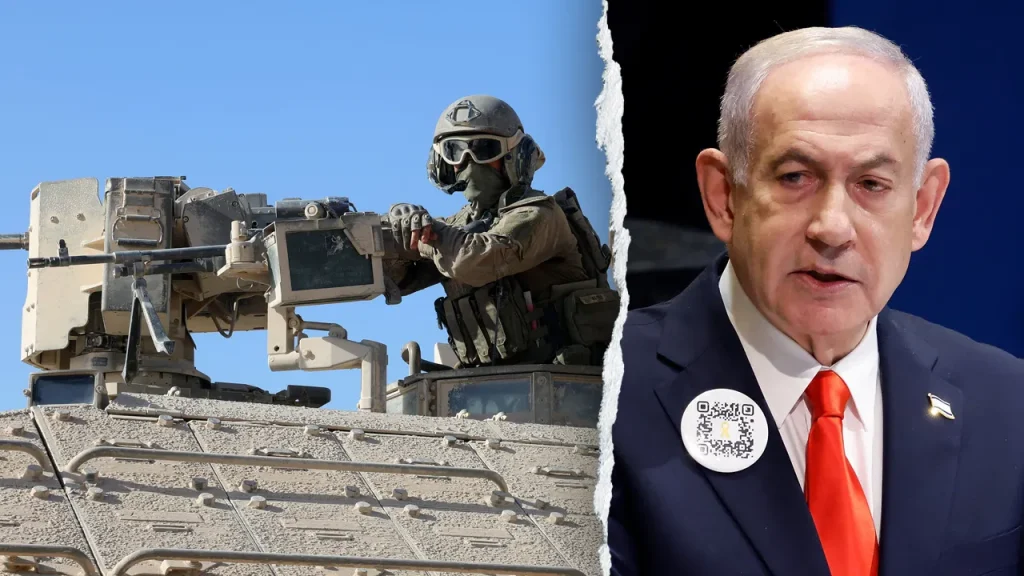Netanyahu Orders Strikes in Gaza Following Ceasefire Violation
Israeli Prime Minister Benjamin Netanyahu has ordered “immediate and powerful strikes” in the Gaza Strip following what Israeli military officials described as a Hamas violation of the recent ceasefire agreement. This escalation marks a significant turning point in what had been a brief period of reduced hostilities in the long-standing conflict between Israel and Hamas.
According to Israeli Defense Forces (IDF) officials who spoke with Fox News, the strikes were ordered after Hamas allegedly attacked Israeli soldiers in Rafah. The incident represents a severe breach of the U.S.-brokered ceasefire that had taken effect on October 10. In response to Israel’s renewed military action, Hamas announced it would delay the handover of a hostage’s body—a key component of the ceasefire agreement that had included prisoner and hostage exchanges between the two sides. This rapid deterioration of the ceasefire highlights the fragility of peace efforts in the region and the deep mistrust that continues to characterize relations between the Israeli government and Hamas.
This most recent violation comes on the heels of a previous incident earlier this month when two IDF soldiers were killed by terror operatives in the same area. The soldiers—identified as 26-year-old Major Yaniv Kula, a company commander, and 21-year-old Staff Sergeant Itay Yavetz, both from the 932nd Battalion of the Nahal Brigade—lost their lives when militants reportedly emerged from a tunnel and opened fire on an excavation vehicle. The attack, which also severely wounded a reserve soldier who was subsequently hospitalized, prompted an immediate Israeli response at the time, including air and ground strikes across southern Gaza. The IDF claimed to have dismantled six kilometers of underground infrastructure used by Hamas, employing over 120 munitions in the process. These tunnels, according to Israeli military statements, were being used to “advance attacks against the State of Israel.”
The ceasefire that is now in jeopardy had been carefully negotiated with U.S. involvement and represented a temporary pause in a conflict that has devastated the region for the past two years. Under the terms of the agreement, both sides had committed to a series of humanitarian measures: Hamas agreed to release Israeli hostages, while Israel would free Palestinian prisoners. Additionally, the ceasefire was designed to allow humanitarian aid to reach Gaza’s civilian population, which has suffered immensely throughout the prolonged conflict. For families on both sides—Israelis awaiting the return of loved ones held captive in Gaza, and Palestinians hoping for the release of relatives from Israeli prisons—the ceasefire had offered a glimmer of hope in an otherwise bleak situation.
The human toll of this conflict extends far beyond the combatants directly involved. Since the war began two years ago, thousands of civilians have been caught in the crossfire, with Gaza’s infrastructure severely damaged by Israeli bombardments aimed at Hamas targets. Schools, hospitals, and essential services have been disrupted, creating a humanitarian crisis that international aid organizations have struggled to address. The temporary ceasefire had allowed some relief supplies to enter the territory, but the resumption of hostilities threatens to worsen an already dire situation for Gaza’s 2 million residents. Meanwhile, Israeli communities near the Gaza border have lived under the constant threat of rocket attacks, with many families forced to evacuate their homes or spend extended periods in bomb shelters.
Netanyahu’s decision to order renewed strikes reflects the complex political realities he faces domestically. The Israeli prime minister has been under immense pressure from families of hostages to secure their release, while simultaneously facing calls from more hardline elements in his coalition government to maintain a firm stance against Hamas. The terrorist organization, which has controlled Gaza since 2007, remains committed to Israel’s destruction in its charter, making lasting peace exceptionally difficult to achieve. International observers and regional experts continue to express concern that without a more comprehensive political solution addressing the root causes of the conflict—including the status of Palestinian territories and security guarantees for Israel—cycles of violence will likely continue regardless of temporary ceasefires.
As military operations resume in Gaza, the international community watches with growing concern. The United States, which helped broker the now-fractured ceasefire, faces difficult diplomatic challenges in attempting to restore calm. European nations, regional Arab states, and international organizations like the United Nations have consistently called for restraint and a return to negotiations, emphasizing that military solutions alone cannot resolve the deep-seated issues at the heart of the Israeli-Palestinian conflict. For ordinary people on both sides, however, the immediate reality is one of renewed fear and uncertainty as they brace for what could become another extended period of deadly confrontation, with civilians once again likely to bear the heaviest burden of suffering.


